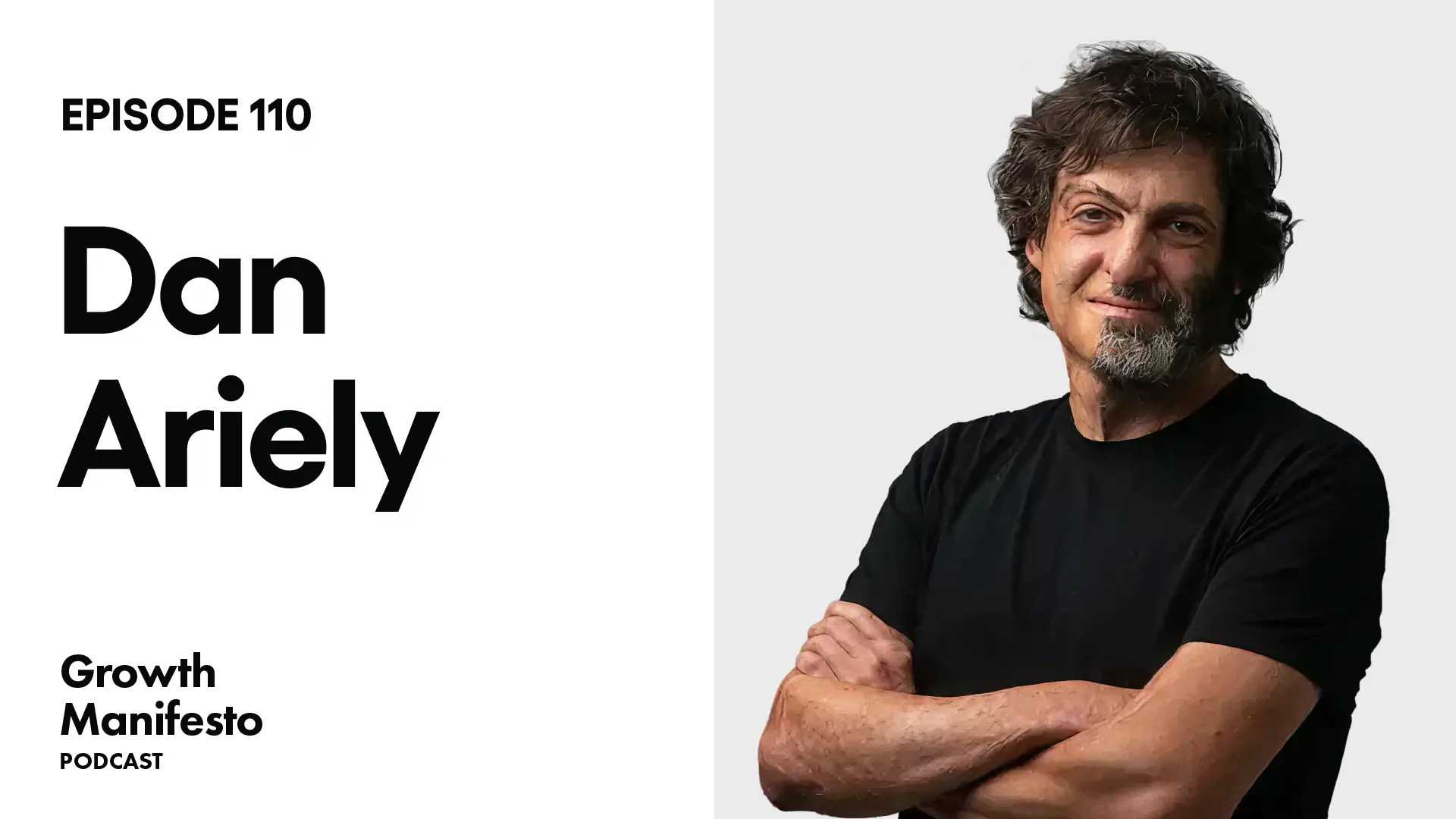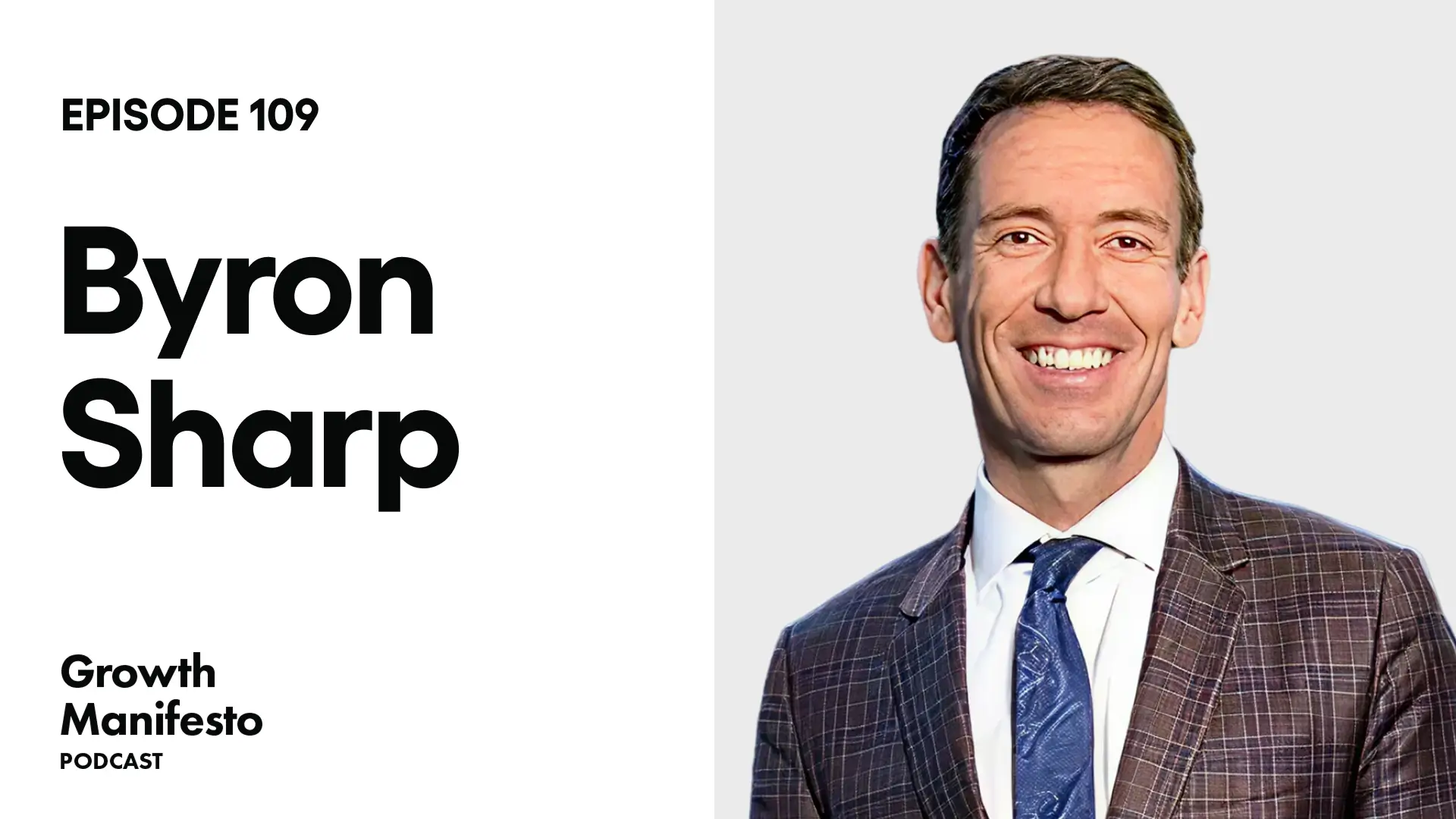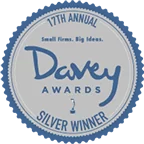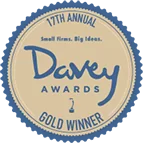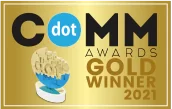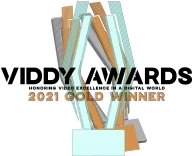How Hacker Noon became an industry-leading publication
This episode is a discussion with David Smooke – Founder and CEO of Hacker Noon. We talk about how Hacker Noon was able to become an industry leading publication (with more traffic that Forbes) in just 4 years, how they used contributors and SEO to drive that growth, how they used equity crowdfunding to support their future growth plans, plus we touch on blockchain, A.I. and the state of the news industry in today’s world. We go on a few tangents in this episode but I’m sure you’ll like it.
LINKS
—
You’re listening to The Growth Manifesto Podcast, a Zoom video series brought to you by Webprofits – a digital growth consultancy that helps global and national businesses attract, acquire, and retain customers through digital marketing.
Hosted by Alex Cleanthous.
- YouTube: https://www.youtube.com/c/GrowthManifestoPodcast
- Instagram: https://www.instagram.com/webprofits/
- LinkedIn: https://www.linkedin.com/company/web-profits/
- Facebook: https://www.facebook.com/Webprofits/
- Twitter: https://twitter.com/webprofits
- Agency: https://www.webprofits.io
SHOW NOTES
- 00:01:01 David’s introduction to the Growth Manifesto Podcast.
- 00:02:05 What is Hacker Noon?
- 00:05:12 How did you get the idea for Hacker Noon?
- 00:09:44 What’s your approach in attracting contributors to your blog?
- 00:11:51 Did organic traffic play a big part in Hacker Noon’s growth?
- 00:13:37 David talks about writing trends he’s found along the way
- 00:15:56 What tools do you use to improve organic performance?
- 00:18:30 How did Hacker Noon become the tech platform of choice for so many people?
- 00:22:15 David talks about what it was like when he first started Hacker Noon and how he eventually scaled the company
- 00:27:52 How did you meet the challenge of balancing your published content with your monetized content?
- 00:31:58 David and Alex discuss their thoughts on the media and journalism industry
- 00:38:04 How an equity crowdfunding campaign helped Hacker Noon grow
- 00:44:00 What are the biggest lessons you’ve learned from the equity crowdfunding campaign?
- 00:46:26 David talks about investing in the tech behind Hacker Noon platform
- 00:48:54 How does having your own software and platform to publish content help you get to the next level?
- 00:54:30 David talks about the blockchain experiments they’ve been doing on their tech
- 00:56:01 David shares his thoughts on Bitcoin and digital cash
- 01:00:28 David tells us where he thinks the blockchain industry is heading
- 01:02:35 What are some of the coolest tech innovations you see coming in the near future?
- 01:04:50 What are the concerns of AI starting to write news and content?
- 01:07:15 Where do you see life eventually going with all the technological advancements happening right now?
- 01:08:33 What would you want the people listening to this podcast to do?
TRANSCRIPT
Alex Cleanthous: Of course.
Alex Cleanthous: Cool. All right, everyone. Hello. Today, we’re talking with David Smooke, founder and CEO at Hacker Noon. Hey, David, how are you?
Alex Cleanthous: Yeah, for sure. Now, for those of you who don’t know, Hacker Noon is one of the leading tech publications on the internet, and I quote from the website, where hackers start their afternoon. So it may have started with hackers, but the site was founded in 2016 and drives more traffic than Forbes, which was established in 1917, with millions of visitors each month. And so today, we’ll be talking about Hacker Noon’s success, including the initial growth, the evolution of it, and then we’ll get into the tech stuff because there’s been quite a lot of stuff happening across the blockchain space recently. And Hacker Noon, I first heard about this back when we got into the blockchain marketing side of things. And Hacker Noon was and still is the place to go for that level of tech news.
Alex Cleanthous: And before we get started, just make sure to go ahead and hit the subscribe button so that you get the latest episodes as soon as they’re released.
Ah, David, this is going to be a fun chat. But I thought it would be good to start by talking about Hacker Noon and just explaining what Hacker Noon is for people who may not have heard about it before.
Alex Cleanthous: Okay, that’s a really good intro. Let’s just take a step back a little bit; Hacker Noon was your third business, right?
Alex Cleanthous: How do you count it?
David Smooke: And as it made more money, we brought more people on, really the first two years was just me and part-time people and then my wife, who is more talented than me, joined, and that’s when things started to grow a little more significantly. It’s been a pretty fun ride. Right now, we’re at seven people full-time and eight part-time. So I’m enjoying the life of a small remote team and how to just have fun on the internet together.
Alex Cleanthous: And have you always… So like in… Well, you started a few years ago, there are seven people now, is everybody remote?
Alex Cleanthous: Yeah, that’s great. That’s great. That’s great. And how did you get the idea for Hacker Noon? Because you said you were doing 30 sites or something, trying to publish a bunch of content, but how did you get the idea for Hacker Noon?
David Smooke: And I think it’s going to continue to get easier. Different plugins and people wanting to speak better to each other; where you own your content, it’s in one place, and then you distribute it to Hacker Noon and many other sites. So that’s kind of like… What I saw is like a trend is how people wanted to behave, and the challenge of growing your online presence is everywhere. Why are you an expert? Why are you doing a podcast? How do you meet new people, especially as you know, we’re all in America, we’re all locked down. I don’t know; maybe it’s a little better for you.
Alex Cleanthous: It’s rolling. Sometimes it’s locked down; sometimes it’s not locked down; it depends on the week.
Alex Cleanthous: Yeah, sure. And let’s just jump back a second to one of the comments you said. You said that in your previous role, you built up a blog to 400 contributors. And I’m assuming a bunch of traffic, and I’m assuming a bunch of success as a result of that. It sounds like your approach is the contributor-led approach to content publishing, is that right?
Alex Cleanthous: Yes.
Alex Cleanthous: Yeah, right. And so your approach is to produce a lot more content because you get other people to publish it. There’s often this approach where everyone thinks that I need to create content just to share with my audience. And so they go out and create it themselves. But your approach is to get other people to contribute that content and to create the location where everybody comes to for that content. Is that right?
Alex Cleanthous: And what’s your approach in attracting contributors? For example, in the previous role, you got 400 contributors for somebody’s blog, right? So how do you approach that?
Alex Cleanthous: And then how do you get traction on that? Because in the beginning, it would have been challenging to get people contributing, when they had never even heard of Hacker Noon. So how did you just get started in the beginning?
Alex Cleanthous: Yeah, right. Yeah, right. And so I’m assuming then because it started off as a part-time gig and it’s not a small team, but it’s not a huge team, you have been bootstrapped. And so I’m assuming that you relied a lot on organic traffic to support that growth. Is that right?
Alex Cleanthous: Does part of your process when people contribute articles to help change those headlines a little bit to rank higher?
Alex Cleanthous: So, that is giving away all of your best stuff, what have been some of those trends that you’ve found?
David Smooke: So, that’s where I think like… And there’s also practise, like most bloggers and professionals, they won’t spend the 20 minutes to write 20 headlines. Just that exercise of saying, “Hey, I’m an editor, I know this headline doesn’t work, I don’t know what the answer is, here’s 10. Let me take a deep breath, have a drink of coffee and pick one.” And even just doing that moment, is something everyone should do. But if you don’t, we can do it with our editors at Hacker Noon.
Alex Cleanthous: And it’s so interesting as well because you spend so much time creating the content and yet that headline is the number one reason that anyone is going to read that content. But because that content has often taken so long and taken up so much of you emotionally, physically, at the end you’re just like, “It’s a pretty good headline, I just want to hit publish so that I can get on to my next task.” Like done. But it’s such a good piece of advice, spend 20 minutes and write 10, 20 headlines, then step away, then come back.
Alex Cleanthous: That’s great. That’s great. And so just from an SEO tactical perspective, are there any tools which you use to help improve the organic performance at the time of publishing or in terms of the structure itself?
David Smooke: Google’s advantage over everyone in 2003 is not what it is today. So there’s that element of it and how much do you want personalised search and search based on what I’ve done before on the internet, versus how much do you want search based on pure intent and what does the aggregate of the internet think when this term comes in? I like that in terms of subject matter expertise, finding what you want to look for, looking beyond my circle. My bubble is my bubble. If they have information, I’ll find it, but I really would prefer to take a step away from my bubble and learn what the internet thinks this word means or what I should find when I search for it.
Alex Cleanthous: Mm-hmm (affirmative). Yeah, right; yeah right. And this time, a quick shout out just one of our clients as well, I have seen what seoClarity does, and they’ve got some awesome AI recommendation engine for content. So just kind of have a look at them as well there, David, because that might just give you some alternate ideas and they’ve got some…
Alex Cleanthous: … pretty huge clients. I had to say that because for your site, I think it’d be super interesting to see what it could do. Thanks for sharing so far. I want to keep going down this path. How did you then take this information…and how did you become a tech platform of choice for so many niche or niche industries? It depends on which country you’re from. But how did you… Because I hadn’t heard about you when we got into blockchain, and then as soon as I heard about you, I was like, “Wow! Okay, this is a big site.” And all the tech companies, they know you, they all want to be on Hacker Noon. If they’re on Hacker Noon, then all of the other… The audience of Hacker Noon is very specific. How did you become that place of choice or the destination of choice?
David Smooke: So we get a little more systems, and that builds up over time too…and we’re pretty good about tracking stats, and we recently did an investment from Coil, where now writers can stream small micropayments from Coil subscribers to Hacker Noon writers for their time spent reading. So there’s like, how do you get more little carrots and how do you build out these more little benefits, these more mentions and just how do you serve the contributor? And that’s something where more readers is one of the simplest ways to do it.
Alex Cleanthous: So was there an area that started first that had driven the initial traction? Was it because of blockchain and because that went nuts back in 2016, ’17, ’18? Is that the area which started it or kind of had it started before that point?
Alex Cleanthous: Yeah. And because I’ve been… So I’ve been in the SEO game since 2001, so I’m kind of older now. But the one thing that has been consistent since that time is the more content that you publish that’s quality—in the beginning, it didn’t have to be quality, but these days it’s quality—so the more quality content that you publish, if you structure the site correctly, which is not too hard these days, your organic traffic starts to grow. And if you then add a little bit of promotion, outrage, a little bit of strategy behind it, it can really start to accelerate. And so, it’s interesting how you explain it sounds so simple. And yet, it’s a bit of a process to find content, publish it, edit it and to do that consistently on a daily basis and then continue on. How did you balance that in the beginning?
David Smooke: So that area is a little less self-interested than it used to be, just in terms of spending my time and it was… It took over because people wanted to advertise on it. And it was enough to pay for the… Once Hacker Noon was more in demand than my other clients, I was taking Hacker Noon money. So the goal was if I’m trying to make money, the simplest way is leave your job, get a consulting contract in your area of expertise. That’s something anyone with some level of proficiency in the market, and that the market is hiring part-time people, you can do it. And that’s how I started, and then it’s, “Okay, how do I scale?” Because at the end of that, you can really only scale by scaling up your workforce and selling your workforce to somebody else.
David Smooke: So I was really just searching for ways where it’s my site, it’s a thing that works while I sleep, it’s a machine that keeps operating, and if I’m hit by a bus, it will continue to exist. And that means it has enough value that it can grow with or without me. If it can’t grow without you, it’s not a real business. It can still be a business, selling endorsements for athletes, while the athlete is not there, they can’t sell the endorsement, but that’s a lot of money, but it’s not the business in the sense of it’ll outlive you, or it can do stuff without you.
Alex Cleanthous: And so I’m assuming you had a lot of late nights with content editing in the beginning. Is that right?
Alex Cleanthous: Early mornings.
Alex Cleanthous: Yeah, sure. And so, it must have been really exciting to see that organic traffic chart shooting up in the early stages. Because if it were me, I would be looking at Google Analytics daily, I’d have the real-time app just on the side, so I could see how the real-time traffic is going. But how was that experience, just seeing that traffic starting to just really shoot up?
David Smooke: And that creates the incentive of just more time reading, more impression, no click-through, no tracking, a really simple ad that we sell directly to companies. And so that’s the stance we’ve taken on sponsorships and ads. And then we want to absorb companies, corporate blogs and tech releases and be a trusted source where they can distribute their news. So, that’s a little more of the direction we’re headed in terms of how we work with tech companies.
Alex Cleanthous: And is that a subscription model? The one which you’re talking about with companies, or is that coming soon, and you can’t talk about it yet?
Alex Cleanthous: And it’s… The publishing industry over the last ten years, from the newspaper, “the downfall” of the newspapers and journalism has caused this real friction between publishing and monetisation. And so, that would be a really hard challenge, because, on one hand, you got to the traffic which you got, because it’s been a pure, clean website, and then on the other side, you got to monetise it because if you’re getting that much traffic each month, you’re going to have to be investing in ensuring the site is always up. That the site doesn’t go down because somebody awesome, which you would absolutely want to post something and a couple of million people would just hit the site at the same time. So how did you balance that challenge?
Alex Cleanthous: Okay, cool. Well, congratulations.
Alex Cleanthous: Yeah. You’re like, “I still feel sick, but I feel way better.” Go ahead, David.
David Smooke: And I think as you look at individual creators connecting directly with their fans, that makes a lot of sense, the value of grouping together 10, or 100, or 1000 sources, well, I can kind of do that on my own in terms of how that works. So I think that’s kind of where I ended up on learning about this. But it also depends on the industry; it depends on the content. There’s not a set business model for anyone that’s writing stories online. For you, it’s probably your blog is all about your clients and the moment they sign that big check, you’re like, “I justified the time on the blog.” That was part of it, that’s part of the buying journey. It’s not like you want a dollar from each one of your readers, and if they don’t read it, they don’t pay you a dollar, and you don’t gain a reader either. So, that’s… People should pick their own path when they’re trying to make a business model; for us, we want to keep all of our content free.
David Smooke: How do you do that? Well, 10 pixels on the page is going to go to this guy, and this guy is going to tell you he’s launching his new open-source tool, and you can check it out and maybe build an app on it, and then they win. So that’s the spot I ended up on it, but it depends on your company, it depends on your field. There’s not really… It’s a bit of a free for all; it’s not as simple as other industries where they know what the best business model is.
Alex Cleanthous: Yeah, that’s right. And also.. it’s changed so much, and it’s changing so much, and nobody’s really figured it out yet. And so you do have a real opportunity to create a new… What do they call it? A category. You can create a new way for publishers to publish content and to get paid for it. Right? Because I get super concerned about how journalism is just going by the wayside a little bit because of the spate of social media, the spate of requirement, of content, the spate of all these journalists having to write their own content and having to get ideas and not having time to research them properly. Because the news cycle is so quick these days. It’s a real concern. And so, there’s certainly a big opportunity, I think, to really open this up and have people share the news and actually have it corroborated or confirmed through sources.
Alex Cleanthous: It’s still a problem right now, the fact that I can just say something and it can be referenced 20 times, and I could have just lied, right? And so there is opportunity about that, but let’s just quickly…could you talk about your thoughts on the media industry, the journalism industry and so on? The papers, the places that we get our news?
David Smooke: And I know I’ve spent too much time on Twitter in looking through the news that way, and now you’re saying an algorithm-based organisation, is the way to curate the version of this story? And then on top of it, it’s like, “Okay, how do I just filter by stories that aren’t paywalled? Or how do I filter by stories that are original reporting versus regurgitated?” So there’s search things that I’m hopeful companies can do better over time about how to find news. So the echo chamber stuff, it’s like you see why it works. If you’re trying to say engagement is the answer, what you want when you surface content, what you want is engagement, you just create sensationalism in a bubble. If I publish what I like to ten people that I know already like it, it’s going to go great; it’s going to go great. They’ll all going to like it.
Alex Cleanthous: Yeah, sure. Yeah, sure. Yeah, sure. Thanks for that quick aside. I get super passionate about this stuff because it’s the news and it’s what they tell us…
Alex Cleanthous: I’ve gone back and forth on channels. I stopped watching TV five, ten years ago. So I don’t watch the news. I stopped reading the papers for quite a while, except for the business news, I was getting a lot of my stuff from social media, but then I stopped that too. Now what I do is I will get a few apps that are from the different newspapers out there. So I’ll get, say, for example, get the one on the right and then I’ll get the one that’s on the left. And then I will just read the one that’s in the middle. And I’ll just see what are the extreme opinions and then what’s the one in the middle, and I’ll try to make my own assessment of the story. And then I will go, and I’ll have a look at the things that they say to corroborate it, or just to confirm that what they’re saying is actually based in truth and trying to read between the lines of what I’m being told.
Alex Cleanthous: Because I understand that they’re a business and they’re owned by people and those people, they might have agendas or not. And so, that’s okay, and so being aware of that… To read what the US says about coronavirus, and then to read the South China Post, and then to read the Russian Today, just to see what everyone is saying about the same thing and see how it changes. And then between all the stories, there’s the truth somewhere, hopefully, right? And that’s the way I try to keep across things without feeling like I’m being told what to think. If that makes sense?
Alex Cleanthous: Jordan Peterson was the one that happened that basically opened my eyes to say, if you believe something so much that it’s the absolute truth, that’s where all the worst things happen in the world. That’s where all of the worst stuff happens in the world. And also, most people are generally wrong, and not everybody can be right. So then it is good to have some scepticism about how strongly you believe something’s true. If you believe it’s absolute, is it absolute? Can it ever be absolute? Or is there another way?
Alex Cleanthous: Yeah, exactly, exactly. But I am aware that we’re going way off track. But I do love this conversation. And I had this conversation for hours with friends and stuff. But let’s come back to Hacker Noon, right? Because you’ve now got some traction, and then you bootstrapped it for a couple of years, but then you raised some money through a crowdfunding campaign. Yeah?
David Smooke: So we had to do a lot of due diligence, spend about 30 grand on lawyers and accountants and third-party reviews. So it was like… It’s still a pretty good cost, and it takes a lot of time to write the campaign, but for the most part, all we did was put the crowdfunding link atop our site, and people clicked through. So, 85, 90% of the traffic to the Start Engine crowdfunding page was from hackernoon.com. So it was this cool thing of like, you’re visiting a site, you can buy a stake in it. So that was what we played into of how to grow, and then it also creates people like some of our largest customers have come from introductions from shareholders. So you have this little army of people that have a vested interest in growing their stake… Because they like this thing already and they see it could be bigger and better.
David Smooke: So in terms of aligning interest, it’s a lot cooler to have 1,200 people that already like the site, than one venture capitalist who thinks you have an interesting idea and may want to change the direction you’re trying to take this thing, or you just have one partner who… It’s a lot more fun to have the community owning a piece of it and whenever I grow this thing in the future, that they’re going to be rewarded for believing this.
Alex Cleanthous: And so they actually own a part of it?
Alex Cleanthous: So, it’s not like those other crowdfunding sites, like Kickstarters and stuff, it’s more…. It’s equity crowdfunding.
Alex Cleanthous: So they’re getting a piece of the company. Is that right?
Alex Cleanthous: How does that work exactly? Is it a large percentage, is it a small percentage? How much have you given away?
Alex Cleanthous: So it’s a million-dollar company basically, instantly overnight because of the crowdfunding, right?
Alex Cleanthous: Validates it.
Alex Cleanthous: Yeah. And as black and white as well, because everyone thinks their company, their baby is the best one in the world. Right? But it’s only when you get that external validation. And especially when it comes to valuations, it’s absolutely black and white. So when somebody spends money for a percentage, that’s the value. That’s absolutely black and white. But it also shows the passion and the quality of the company, of Hacker Noon, right? The fact that you raised quite a lot of money. And I would suggest…well…I would think it was probably wasn’t that long, because of the volume of traffic on the website. That must have felt pretty rewarding at that point.
Alex Cleanthous: It’s like Google Analytics on steroids. It starts with the money. I would just love to see the Google Ads, the dashboard inside of the Google headquarters, to see just…. Because we calculated it back in 2016, we did this chart on… it was like an infographic on how much Google makes per second, and it was just out of control. And I was just thinking if that was… That would be a cool report. But this is not like Google, but still super fun. Well, how long in terms of that whole process? So you launched the crowdfunding campaign, how long did it go for before you closed it off?
Alex Cleanthous: OK
Alex Cleanthous: And so what are some of the biggest lessons or the best pieces of advice which you can share with people who are listening and who may be considering equity crowdfunding.
And then also it’s like, what business models fit this? Why we’re a good business for this is because we had a large community. We had a lot of people that had vested interest in this thing getting better. They want to read it; they want it to be a better writing experience. There were things that they selfishly wanted. So if you look at media and larger community-driven sites…. I think people with large Instagram followings and super fans like that, looking at saying, “Hey, how do I turn someone that really likes and believes in me into a shareholder?” That’s the group where I think equity crowdfunding is going to grow a lot.
David Smooke: If you’re trying to sell another shoe and most of the people that visit your sites are interested in shoes, you’re probably not a great fit for equity crowdfunding unless maybe you figured out Tod’s, a mission-driven shoe company, but if you’re not as mission-driven, equity crowdfunding is probably less viable in a lot of ways.
Alex Cleanthous: The mission-driven is a big part of it.
Alex Cleanthous: Yeah.
Alex Cleanthous: Yeah, for sure. And so you spoke at the very start, and you mentioned that you’re investing quite a lot time in the platform itself, in the tech behind the platform. Can you talk about that?
Alex Cleanthous: Have you always been into software, or was this the first forced requirement to get into software?
Alex Cleanthous: So, no.
David Smooke: So it definitely created a lot of thinking like that. Now I habitually do, and I hate my phone, and I hate the computer, I don’t like the way it works. And you get frustrated and distracted. So, we’ll probably want to start a phone company next.
Alex Cleanthous: But the reason that you created your own platform is so that you could have full control over how people engage with it, what extra features, is that the reason?
Alex Cleanthous: What was lacking before? Because like you said before, if you publish the right content and if you publish it regularly, things go up, and they have for you, right? But now you’re saying. “Actually, there’s another level.” What’s that next level that the software is going to help you get to?
David Smooke: So you’re just only going to get so big. Why does the New York Times have such a large tech team? Their tech team is massive, their tech is all built exactly for what they want, and they have billions of dollars, over a billion dollars a year in subscriptions. So, that’s like an online experience they’ve created. So you just get capped as a media company, and you see it. If you want to look at it in the reverse way, you look at how a venture capitalist talks about it. Media companies have 3X revenue evaluation; software companies have 10X evaluation; they just look at their little rule of thumb, which one are you? Okay, let’s multiply your revenue.
So there’s that rule of thumb valuation, and it’s is real though. Because we could take our content management system and build 50 more sites because it’s our software and it’s not the same as, “Hey, we’re going to take WordPress and white label it and say it’s Smooke Press.
David Smooke: And now we have… There’s a level there of how… what are your actual growth paths? And software or something like with the Noonies, is a voting software we built and now we’re going to put it in more types of voting locations. And we built it, and now we have a software that allows people to vote on different items and securely vote and track votes and that stuff. So there’s an element of how do you grow? And sometimes with software, it allows you to be horizontal, as opposed to just saying, “I’m just building hackernoon.com.
Alex Cleanthous: Yeah, that’s fantastic. And just on the point around the inline emoji reactions. When I was reading about that, I thought, this is really cool. This is where you can actually… actually…. Maybe you should explain it. Could you explain what….
So as you look at it saying, “Hey, I could like it,” and you click one button at the top, and you don’t know what section of the content they liked. So actually getting the reactions to where the content is in the story is much more valuable information to share with the writer and share them specifically what resonated in the story. So that just like…on the opposite side of it…looking at where they drop off the story, is also very useful information or where they provide a thumbs-down. So we kept the thumbs-down in as one of the default reactions.
David Smooke: And it was mainly because…what do you say if someone has a grammar error? What do you say if you disagree? We don’t want people to use it to hate on people. So we didn’t put it at the top of the story. So that when you first get to the story, you can’t say it’s negative because you haven’t read it. But if you get to a part where you’re actually reading, you can give a thumbs-down and a negative feedback. So figuring that out was kind of fun…of just how do I not be the platforms I hate?
Alex Cleanthous: That’s a good one. Is that information public as well?
Alex Cleanthous: It’d be cool…because there’s so much content to read. Like in my pocket app, I just have saved so many stories that I just never get to, because I don’t get to them. They’re 7000 words, 20,000 words, 10,000 words…content has gone out of control. And so having a way to scroll to where all the emojis are, and see why did people like that? And why did they not like that? That’d be really cool. Just helping people consume the best parts of content as curated by others.
Alex Cleanthous: I think that’s just a really cool feature. So I’m starting to get just why creating the platform itself is so much better for the reader as well.
Alex Cleanthous: You also—and correct me if I’m wrong—but does the tech also have a component of blockchain in it?
David Smooke: One thing I like about the Coil model is what you consume online, give them that portion of my budget, based on how much I consume it, just they earned it. So that’s the area where I really like the direction they’re headed and why they’re a good partner for us. So, that’s been our most successful blockchain experiment so far.
Alex Cleanthous: And you know what’s cool about that experiment? It’s actually one of the only ones I’ve heard of that’s actually live in the world. I’m sure there’s a lot, by the way, I’m sure there’s plenty.
Alex Cleanthous: Yeah, let’s jump on that quickly, because the date today that we’re recording is Thursday, the 19th of November. That’s in Australia; you’re probably Wednesday, 18th there. But it’s almost $18,000; it’s $17,785 right now—because I’ve got a little thing at the top of my browser, so I can always…it’s on there 24/7—it’s almost at $20K again. They’re pretty close. What do you think is the cause of that? Or what do you think is the driver of that right now?
David Smooke: So, that’s huge because…to me, the credit card fees are, “Why?”
“Why/” it just like…. You just look at a bank account; there’s just so many fees where you’re just like, “Why?” Is the central entity helping? What the central entity really has helped with historically is trust; in making—over time—to believe that the currency remains this amount. If community trust is high enough, that that amount is true, the central entity isn’t needed anymore. So I think that’s a direction that cash is definitely going and Bitcoin is part of the story. It’s not going to be the end thing of how I pay you, and you pay me…is kind of where I see it. But because it’s such an important part of the story, I think it’s a good store of value and the market reflects this and it’ll go down again, but in the long run, it’s going up in my opinion. Still.
Alex Cleanthous: Some people in our team are suggesting that it could either go to $100K, because some people are speculating $100K, if it hits $20, it’s going to hit $30, it’s going to hit $50. What do you think?
Alex Cleanthous: What do you think just as a personal opinion?
Alex Cleanthous: No to invest; this is not investment advice. What are your thoughts on that?
David Smooke: And then what Bitcoin is doing is a parody of that almost… . It is true that it’s doing it, but it’s also just like the face. It’s a good name. They kind of cover in the story…. I love having an anonymous founder or group of founders and not having a company at the core of it; whoever did that they get it. The story needs to be decentralised at the core for the thing to grow up; even if that person is sitting on so much Bitcoin right now, they’re just laughing their ass off that they think that because there’s not a company, it didn’t make me everything.
Alex Cleanthous: Yeah, exactly. Exactly.
Alex Cleanthous: And what do you think about the blockchain space? Well, the first time I heard about it, I was like, this is going to change everything. And I still believe it’s going to change everything. But I thought it was going to change everything quicker than what has happened. And last two years have been pretty low in terms of the whole industry across the board. But where do you see it going?
David Smooke: And it just needs to be, “Hey, I’m choosing the blockchain, for this reason, to not deal with surveillance capitalism,” or whatever your reason happens to be watching treats that use case is slightly better and then you have to do no extra work to instal it or to integrate it. And it’s the same amount of work if you were taking a competitive solution that’s not blockchain-based. And so when that is closer to true, we’ll be in a better spot. But, I do think blockchain may not be the best solution to digital cash. And digital cash with a zero transaction fee is something that I think we’ll get closer to existing and it may or may not be a blockchain-based solution.
Alex Cleanthous: What will it be if it’s not a blockchain-based solution?
Alex Cleanthous: You don’t know? Okay.
Alex Cleanthous: It’s Hacker Noon cash. Yeah, for sure. There’s one last point, and we’ll see how long this goes for. But you get to be across a lot of tech stuff, just being across all the Hacker Noon stories and so on, what are some of the coolest tech innovations that you’re seeing coming in the coming years?
David Smooke: My machine deals with the noise; it gets me the decisions, I make the decisions. How to get your workday towards non-mindless work, because you always get to a point where you have to copy and paste, isn’t that kind of mindless work? There’s something where those technologies are exciting. And I think getting better at writing, which is a little scary, making machines that can write books and the different stuff like open AI is doing specifically. There’s some… Yeah, it’s still a lot of data in the early days, but like you read about sports, a baseball report can get pretty close of just them translating a box score into human language and learning from it. And it’s you can get the story of the game, especially the baseball where it’s kind of boring, and it’s very like, they swing, they either miss, they get a signal, or they get a double, they get a triple—there’s not as much fluidity as you football or basketball.
Alex Cleanthous: Got it. And so, I did read an article I forget which publication it was—it must have been Hacker Noon—I’m joking, but where the AI had written the whole article and says, “Hey, I am artificial intelligence, and I’m the entity that is writing this article.” And it went on, and it was a really good article. And the whole point of it and I just assume it was AI. This is one of the things that I didn’t check. So you can’t quote me on it, but the whole point was that this article was created by AI. Now, if AI starts to write our news, what will be some of the concerns about that?
Alex Cleanthous: The biggest…. Well, one concern I would have is that if AI is writing the article and if the article is then seen… And this is how fake news proliferates—you create an article, and then you create a bunch of other sites that are linked to that article, and they’re all the sources, and then you create a bunch of other sites that link to that…. It’s like a blog network that SEO companies have used in the past, but now it’s done for content creation. I would say that that would be a real challenge because they don’t have any cost of creating content, it’s just the machine that makes it, and they can just create a web of content that supports itself. I think AI is really awesome, just the application of it and how it’s coded. It’s still coded by people. And the singularity, which is, I think they said, 2042 or something like that. And we don’t know what life is going to be like after that. I like life now. That’s cool. You know what I mean?
Alex Cleanthous: Yeah. Where do you see it eventually going?
Alex Cleanthous: I don’t even know where to go with this. Listen, this is a good chat. Let’s just leave it there for now. I could go down a rabbit hole right now; this is not the Joe Rogan show. So we’ll stick to growth and marketing and stuff like that. Hey, thanks so much for coming on the podcast. It’s such a good…
Well, congratulations on the success of Hacker Noon, I’m excited about what’s coming next. If there’s one thing that you want people to do as a result of listening to this podcast, what would it be?
Alex Cleanthous: Awesome. Thanks so much, David, for coming on the podcast. This has been such a cool chat. We’ve gone on to more tangents in this podcast than I normally do.
Alex Cleanthous: That’s all about the tangent, isn’t it?
Alex Cleanthous: Yeah. I just kept looking at your tree in the background by the way. It’s such a beautiful tree. That’s gigantic.
Alex Cleanthous: How big is that tree?
Alex Cleanthous: It’s out of your window. Yeah. But listen, man, this has been such a good conversation. And thanks for coming on the podcast, we’ll speak soon.
Alex Cleanthous: Thanks, man. Bye.
Thanks for listening to the Growth Manifesto Podcast. If you enjoyed the episode, please give us a five-star rating on iTunes. For more episodes, please visit growthmanifesto.com/podcast. And if you need help driving growth for your company, please get in touch with us at webbprofits.io.
Now that you’re here…
Why not take a few minutes to see how Webprofits can help you achieve your growth aspirations?
We helped one company grow from $25M to $190M revenue in 4 years, and we work with challenger brands that want to make a serious impact in their industry and have the resources (and the will) to make it happen.
If you want a growth strategy that leads the way in your industry, find out how Webprofits can help you transform your digital marketing.
See what we can do


